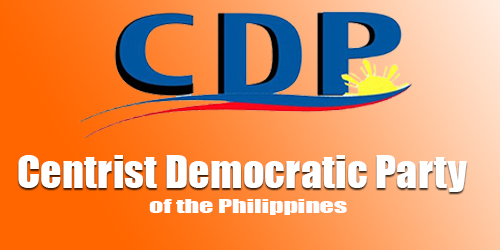Renato Tibon .
“CAN you make a river?”
Probably in exasperation at the condescending attitude of Ed Alabastro, a project consultant who seemed to have taken the salubrity of Cagayan de Oro River for granted, Rep. Annie Susano of Quezon City asked the question rhetorically while the issue was raging against the establishment of a bio-ethanol plant in Barangay Bayanga, Cagayan de Oro City in 2010. The P2.1-billion plant was shelved due to the strong opposition of the Catholic Church’s Archdiocese of Cagayan de Oro, Non-Governmental Organizations and the then Congressman Rufus B. Rodriguez, then the vice chairman of the House Committee on Ecology. The latter, who recommended to the DENR that the Environmental Clearance Certificate (ECC) sought for be denied, was convinced that the controversial project located in critical watershed areas posed a threat to tributary waterways. Toxic effluents coming from the by-products of jatropha and cassava, the main sources of bio-ethanol gas, would end up as river contaminants. It was likewise seen as disruptive to the river’s fragile flora and fauna with the unpleasant prospect of killing the thriving White-water rafting industry. The site was in fact included in the 3,000 hectares public land Reforestation Program under R.A. 10452 which was authored by Congressman Rufus and passed during the 15th Congress.
Few issues of social impact had arrayed church officials, people’s organizations and political leaders against vested interest groups out to hoodwink people into falsely believing that the business ventures they wanted to establish in the city could generate jobs and revenues for the city and were therefore pro-people. Despite intense lobbying, the unlikely alliance stood their grounds and halted casino operations, mining and logging operations including the said bio-ethanol project, among the several major issues hounding the city. The people behind these potentially destructive schemes would have us believe that those who stood in opposition have “apparent lack of genuine concern for the plight of the poor,” their imaginary beneficiaries. Nothing could be farther from the truth.
Another critical area of concern was the degradation of mountains and hills bordering the City due to unabated logging and illegal mining activities. As the aftermath of “Sendong,” one of the worst floods which hit the city had shown, denuded hills could not hold the cascading waters spawned by the tropical storm. Aggravating the situation was the heavy siltation engendered by unrestrained open-pit mining which caused large-scale movements of waste rock, sand, vegetation and harmful concentrations of minerals and heavy metals to be deposited in the river. When heavy rains coming from barren watersheds poured down and met ominously by rising tides, the advancing waters wreaked havoc and caused enormous devastation to properties and loss of lives. Concerned groups such as Bangon Kagayan and Sulog, led by noted Kagayanons committed to the preservation of CDO’s environment among which were this writer, Nixon Baban, Ben Contreras and Dr. Bob Ocio, filed and obtained a Writ of Kalikasan which thenceforth prohibits anyone from further destroying CDO’s mountains through destructive mining methods. Though the mandamus is holding, a more permanent ban on total mining and logging was filed by Congressman Rufus Rodriguez to ensure that the future generation will benefit from ecological protection and preservation. Another Act authored by Congressman Rufus and passed by Congress was R.A. 09512 or the National Environmental Awareness and Education Act of 2008 to “protect and advance the right of the people to a balanced and healthful ecology and to promote national awareness on the role of natural resources in economic growth and the importance of environmental conservation and ecological balance towards sustained national development.”
For District 2, Congressman Rufus was able to secure a total of P80 million from DENR for the Thematic Tree Planting Programs which include upland, urban, mangrove and riverside tree planting around the city. Aside from the temporarily halted mega-dikes, deemed as insufficient to hold a major surge of flood, these reforestation projects and long-term river dredging programs would help mitigate the disastrous effects of climate change. Reforestation, environmental education and total logging and mining ban would ensure a sustainable conservation of the city’s environs.
More than anything, all of us have a responsibility towards the preservation of this planet. We can start with simple garbage segregation, recycling and reusing non-biodegradable materials, observing the Clean Air Act and not burning our garbage which contributes to global warming and long-term climate change, helping plant trees, and as an aside, voting for political leaders with genuine heart for the protection and preservation of our environment and ecological health. Many of the bills and laws passed by Congressman Rufus B. Rodriguez have these measures as priorities. Let us support his bid for another term in Congress.
We can’t make a river, but we can help make the present one, OUR Cagayan de Oro River, one of the cleanest, safest and a top tourist draw for our world-famous White-water rafting industry.
As Parker Palmer, an American author, educator and world-renowned writer said, “We are a profoundly interconnected species, as the global economic and ecological crises reveal in vivid and frightening detail. We must embrace the simple fact that we are dependent on and accountable to one another.”
(Renato Gica Tibon is a fellow of the Fellowship of the 300, an elite organization under Centrist Democracy Political Institute [CDPI] with focus on political technocracy. He holds both position as political action officer and program manager of the Institute. He is the former regional chairman for Region 10 and vice president for Mindanao of the Centrist Democratic Party of the Philippines [CDP].)
Disclaimer
Mindanao Gold Star Daily holds the copyrights of all articles and photos in perpetuity. Any unauthorized reproduction in any platform, electronic and hardcopy, shall be liable for copyright infringement under the Intellectual Property Rights Law of the Philippines.








